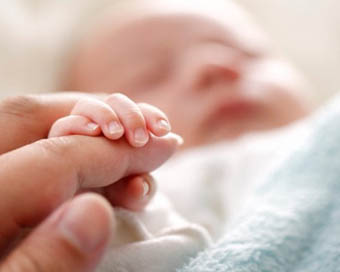Gallery
 PM Modi visit USA
PM Modi visit USA Only the mirror in my washroom and phone gallery see the crazy me : Sara Khan
Only the mirror in my washroom and phone gallery see the crazy me : Sara Khan Karnataka rain fury: Photos of flooded streets, uprooted trees
Karnataka rain fury: Photos of flooded streets, uprooted trees Cannes 2022: Deepika Padukone stuns at the French Riviera in Sabyasachi outfit
Cannes 2022: Deepika Padukone stuns at the French Riviera in Sabyasachi outfit Ranbir Kapoor And Alia Bhatt's Wedding Pics - Sealed With A Kiss
Ranbir Kapoor And Alia Bhatt's Wedding Pics - Sealed With A Kiss Oscars 2022: Every Academy Award Winner
Oscars 2022: Every Academy Award Winner Shane Warne (1969-2022): Australian cricket legend's life in pictures
Shane Warne (1969-2022): Australian cricket legend's life in pictures Photos: What Russia's invasion of Ukraine looks like on the ground
Photos: What Russia's invasion of Ukraine looks like on the ground Lata Mangeshkar (1929-2022): A pictorial tribute to the 'Nightingale of India'
Lata Mangeshkar (1929-2022): A pictorial tribute to the 'Nightingale of India' PM Modi unveils 216-feet tall Statue of Equality in Hyderabad (PHOTOS)
PM Modi unveils 216-feet tall Statue of Equality in Hyderabad (PHOTOS)India Open Competition in Shotgun, organised by the National Rifle Association of India (N
- Hockey India names Amir Ali-led 20-man team for Junior Asia Cup
- Harmanpreet Singh named FIH Player of the Year, PR Sreejesh gets best goalkeeper award
- World Boxing medallist Gaurav Bidhuri to flag off 'Delhi Against Drugs' movement on Nov 17
- U23 World Wrestling Championship: Chirag Chikkara wins gold as India end campaign with nine medals
- FIFA president Infantino confirms at least 9 African teams for the 2026 World Cup
Coronavirus cannot pass from mother to child in womb Last Updated : 13 Feb 2020 01:10:59 PM IST 
file photo Researchers have found that the deadly coronavirus disease (COVID-19) cannot be passed from mother to child late in pregnancy, a study has revealed.
According to the study, published in the journal The Lancet, there is currently no evidence that the COVID-19 causes severe adverse outcomes in neonates or that it can pass to the child while in the womb.In the study, there were two cases of fetal distress, but all nine pregnancies resulted in livebirths.The research also revealed that symptoms from COVID-19 infection in pregnant women were similar to those reported in non-pregnant adults, and no women in the study developed severe pneumonia or died.The new study comes after the news of a newborn (born to a mother infected with COVID-19) testing positive for COVID-19 infection within 36 hours of birth, which prompted questions about whether the virus could be contracted in the womb."It is important to note that many important clinical details of this case are missing, and for this reason, we cannot conclude from this one case whether intrauterine infection is possible," said study lead author Yuanzhen Zhang, Zhongnan Hospital of Wuhan University in China."Nonetheless, we should continue to pay special attentions to newborns born to mothers with COVID-19 pneumonia to help prevent infections in this group," Zhang added."Existing studies into the effects of COVID-19 apply to the general population, and there is limited information about the virus in pregnant women," said study co-author, Huixia Yang, Peking University First Hospital in China.According to the researchers, this is important to study because pregnant women can be particularly susceptible to respiratory pathogens and severe pneumonia, because they are immunocompromised and because of pregnancy-related physiological changes which could leave them at higher risk of poor outcomes."Although in our study no patients developed severe pneumonia or died of their infection, we need to continue to study the virus to understand the effects in a larger group of pregnant women," Yang added.In the study, the medical records of nine pregnant women who had pneumonia caused by COVID-19 infection were retrospectively reviewed.Infection was lab-confirmed for all women in the study, and the authors studied the nine women's symptoms.In addition, samples of amniotic fluid, cord blood, neonatal throat swabs and breast milk were taken for six of the nine cases and tested for severe acute respiratory syndrome coronavirus 2 (SARS-CoV-2).Importantly, the samples of amniotic fluid, cord blood, and neonatal throat swabs were collected in the operating room at the time of birth to guarantee that samples were not contaminated and best represented intrauterine conditions.All mothers in the study were aged between 26-40 years. None of them had underlying health conditions, but one developed gestational hypertension from week 27 of her pregnancy, and another developed pre-eclampsia at week 31.Both patients' conditions were stable during pregnancy.The nine women in the study had typical symptoms of COVID-19 infection, and were given oxygen support and antibiotics. Six of the women were also given antiviral therapy.All nine pregnancies resulted in livebirths, and there were no cases of neonatal asphyxia.Four women had pregnancy complications (two had fetal distress and two had premature rupture of membrane), and four women had preterm labour which was not related to their infection and occurred after 36 gestational weeks.Two of the prematurely born newborns had a low birthweight.The authors noted that their findings are similar to observations of the severe acute respiratory syndrome (SARS) virus in pregnant women, where there was no evidence of the virus being passed from mother to child during pregnancy or birth.IANS Beijing For Latest Updates Please-
Join us on
Follow us on








172.31.16.186







